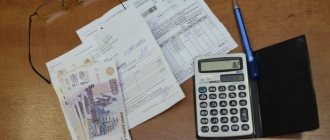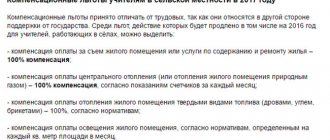Almost all types of activities are subject to taxes. The collected funds are redirected to the state budget. Some individuals may be exempt from paying taxes.
Dear readers! Our articles talk about typical ways to resolve legal issues, but each case is unique. If you want to find out how to solve your particular problem, please use the online consultant form on the right or call. It's fast and free!
There are quite a large number of beneficiaries in the country who do not even know about the possibility of reducing their own costs. However, in most cases you can only reduce costs and only in some cases you will be completely exempt from taxes.
Who is legally required to pay taxes?
There are quite a large number of different taxes that residents of the Russian Federation must pay.
The most widespread are the following:
- Income tax involves paying taxes on various types of earnings. Almost all sources of income are subject to it, but only official ones.
- Property related to the ownership of various buildings. Examples include land plots, private houses, commercial real estate and industrial buildings.
- Transport related to the ownership and use of vehicles. Today, you have to pay a fee, which, according to official information, is used to maintain the road surface in good technical condition.
What, taxes have been abolished altogether?
Someone read paragraph 5 of Article 12 of the Tax Code of the Russian Federation and happily declared to the entire Internet that federal, regional and local taxes and fees are abolished by this code, that there are no more taxes, there is no need to pay anything, and accountants, tax consultants and lawyers can be free.
However, upon careful reading of the entire Article 12 of the Tax Code of the Russian Federation, especially paragraph 6, it turns out that federal, regional or local taxes and fees not provided for by this code cannot be established.
This means that if taxes and fees are adopted by some legislative or other body, but are not named in the Tax Code of the Russian Federation, then these legal provisions are canceled, that is, they have no legal force.
This means that if any local legislative assembly, ministry or department passes laws on taxes, they are not valid until they are included in the Tax Code of the Russian Federation.
So it’s too early to say that our state has abolished all taxes. All past years, state policy was aimed at creating a strict system for controlling the payment of taxes, and it is wrong to think that as a result of this they can simply be abolished.
Persons exempt from paying taxes
Almost all citizens of the country encounter taxes to one degree or another. However, in some cases, payments can be avoided.
Personal income tax persons
The most common option is the income one. It provides for the accrual of payments from almost all types of earnings.
This mandatory tax applies to all official income, but in some cases it is not paid:
- Persons under public care do not have to pay the income in question.
- Non-working citizens should not make such payments due to lack of source of income.
- Pensioners also fall into the group of persons that are exempt from the payments in question.
- Due to the lack of official income, students may also not pay income deductions.
- Unemployed women who are on maternity leave.
- Minors who do not have official employment. There are exceptions when minor children work under the supervision of their parents.
Let's celebrate! In addition, if you have no official income, you do not have to pay income tax. Of course, you cannot hide your income. Working pensioners do not receive their full salary due to contributions to the budget.
Property tax
As previously noted, federal payments are also due in the presence of certain property. Every year, fees are collected from property owners. They are federal in nature, and the same calculation principles are applied in the calculations.
When making payments, you can also count on benefits to one degree or another. An example is the following property:
- Apartments used as residential premises rather than offices.
- Country houses and country houses.
- Rooms intended for living.
- Agricultural buildings located on land plots.
- Premises intended for the presentation of creativity.
Let's celebrate! The likelihood of granting benefits is influenced by the value of real estate. Owners of expensive real estate are forced to pay the entire cost. In addition, we separately consider the case when one owner has several real estate properties.
Transport tax
There is a lot of controversy regarding transport tax. It is charged every year to vehicle owners. It is worth considering that such penalties are regional in nature. In order to determine the availability of benefits, it is recommended to contact the Federal Tax Service.
The following are exempt from such payments:
- Disabled people.
- Veterans.
- People of retirement age.
- Families with large status.
- Persons who participated in nuclear tests.
- Guardians of disabled people and their parents.
The above list determines that almost the entire group of federal beneficiaries is exempt from the payments in question. In order to reduce your costs, you need to provide documents confirming your right to benefits.
Note! In some regions, you can only qualify for benefits if you own one vehicle with less than 100 horsepower. Today, such conditions are extremely common.
We will pay special attention to the fact that organizations must also pay funds to the federal budget when using vehicles.
The exception is companies that fall into the following categories:
- Religious.
- When creating them, authorized capital from disabled people was used.
- All-Russian public companies related to the activities of people with disabilities.
- Companies involved in the transportation of people.
- Organizations of penal type.
Let's celebrate! Before making payments, you should pay attention to the possibility of saving. To do this, just contact your local tax authority.
Land tax
Deductions related to land ownership have also become quite widespread. It is worth considering that payments have to be made to various organizations.
However, federal beneficiaries are not exempt from land tax. Only in some cases can you count on a reduction in cost, but only partially.
Today, only indigenous residents of the Far East and North, as well as Siberia, can not pay land tax.
Moreover, such benefits are associated exclusively with land plots that are used for residential premises. If the site is used to locate industrial buildings, then you should not count on benefits.
Let's celebrate! In conclusion, we note that in order to receive benefits you have to provide certain documents. They should be issued in advance, for which you can contact the MFC. It is worth considering that the tax authority does not seek to provide benefits, and only after an official application can you count on tax exemption.
Didn't find the answer to your question? Find out how to solve exactly your problem - call right now: +7 (Moscow) +7 (812) 309-53-42 (St. Petersburg) It's fast and free!
What is a single tax payment?
In fact, the essence of this law is quite technical: to give citizens the opportunity to contribute a certain amount to the budget in advance, from which tax authorities will automatically write off tax payments.
If you carry out an alternative, then it is similar to topping up your mobile phone account, now it has become possible with taxes. The Federal Tax Service will offset the payment independently when the payment of property taxes comes due.
First of all, the amount will be offset against the arrears and debts for the corresponding penalties and interest on taxes. If the Federal Tax Service makes a decision to offset funds against taxes, the taxpayer will be informed about this, and all information will be reflected in the taxpayer’s personal account.
A single tax payment can be made not only by the taxpayer himself, but also by another person on his behalf.
As the tax service notes, the use of a single tax payment can significantly reduce the time that people spend on filling out payment documents, and it also minimizes citizens’ mistakes when filling out several payment orders and makes it easier for individuals to pay property taxes.
Responsibility for concealing income
The table of fines and penalties clearly demonstrates whether there is an unemployment tax in Russia - in our opinion, it exists as a liability for the imaginary lack of work, which is expressed in the complete failure to pay taxes on remuneration for work.
| Violation | Punishment | Base |
| Concealment of income by persons registered as self-employed | Fine:
| Art. 129.13 NK |
| Concealment of income by individuals not registered as self-employed | Fine from 500 to 2,000 rubles. | Clause 1 Art. 14.1 Code of Administrative Offenses of the Russian Federation |
| Concealing the fact of employment and illegally receiving unemployment benefits | Recovery from citizens of the entire amount of illegally received unemployment benefits. | Art. 1102 GK |
| Causing property damage to the owner or other holder of property through deception or abuse of trust | A fine of up to five times the cost of the damage caused, but not less than 5,000 rubles. | Art. 7.27.1. Code of Administrative Offenses |
| Fraud in receiving payments, that is, theft of funds or other property when receiving benefits, compensation, subsidies and other social benefits established by laws and other regulatory legal acts |
| Article 159.2 of the Criminal Code |
| Evasion of an individual from paying taxes and fees on a large scale |
| Art. 198 Criminal Code |
| In a particularly large size |
| Art. 198 Criminal Code |
Disabled people from childhood
This category of citizens has the right to additional benefits, including:
- reduction of the tax base by 10,000 rubles when calculating land tax;
- monthly tax deduction from wages for personal income tax in the amount of 500 rubles.
There is no need to worry about paying a property contribution to disabled people since childhood, since they are exempt from it in full. The same applies to business registration and a warrant for an apartment - for this category of people these operations are free.
It is very important for citizens with disabilities to know their rights. In difficult financial conditions, especially in the case of complete or partial loss of ability to work, any benefits will help alleviate the financial situation. One of these preferences for people with disabilities includes preferential taxation. And it will be possible to issue it after collecting a package of papers and contacting the appropriate service.
Tax amount for non-working citizens
So, the amendments suggest that all able-bodied and healthy citizens must transfer 22% to the Pension Fund, 5.1% to compulsory medical insurance and 2.9% to social insurance. Total - 30%. But from what? How will the contributions be calculated if a citizen is unemployed and has no source of income? Everything is extremely simple: the amount of contributions will be calculated based on the minimum wage (minimum wage). Consequently, unemployed (but formally able-bodied) citizens must pay a tax every month in the amount of 30% of the minimum wage. The amount will be approximately 3.4 thousand rubles per month.
Trends in the rental market: taxes and individual contracts
3 ways to legally rent out an apartment








